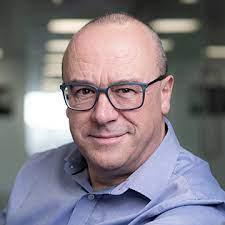Christopher Bishop
Country:
UK
TECHNICAL FELLOW AND DIRECTOR MICROSOFT RESEARCH AI4SCIENCE Christopher Bishop is a Microsoft Technical Fellow and Laboratory Director of the Microsoft Research Lab in Cambridge, UK. He is also Honorary Professor of Computer Science at the University of Edinburgh, and a Fellow of Darwin College, Cambridge. In 2004, he was elected Fellow of the Royal Academy of Engineering, in 2007 he was elected Fellow of the Royal Society of Edinburgh, and in 2017 he was elected Fellow of the Royal Society. At Microsoft Research, Chris oversees a world-leading portfolio of industrial research and development, with a strong focus on machine learning and AI, and creating breakthrough technologies in cloud infrastructure, security, workplace productivity, computational biology, and healthcare. Chris obtained a BA in Physics from Oxford, and a PhD in Theoretical Physics from the University of Edinburgh, with a thesis on quantum field theory. After his PhD he joined the Theoretical Physics Division of Culham Laboratory where he conducted research into the physics of magnetically confined fusion plasmas. During this time he developed an interest in machine learning, and became Head of the Applied Neurocomputing Centre at AEA Technology. He was subsequently elected to a Chair in the Department of Computer Science and Applied Mathematics at Aston University, where he set up and led the Neural Computing Research Group. Chris is the author of two highly cited and widely adopted machine learning text books: Neural Networks for Pattern Recognition (1995) and Pattern Recognition and Machine Learning (2006). He has also worked on a broad range of applications of machine learning in domains ranging from computer vision to healthcare. Chris is a keen Advocate of public engagement in science, and in 2008 he delivered the prestigious Royal Institution Christmas Lectures, established in 1825 by Michael Faraday, and broadcast on national television. Chris is a member of the UK AI Council. He was also recently appointed to the Prime Ministers Council for Science and Technology.
